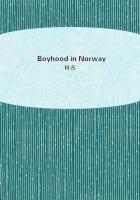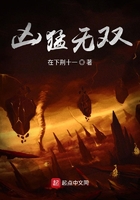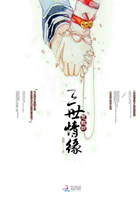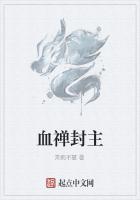Whatever can be discarded is cast aside, and to such an extent that nothing is left at last but a condensed extract, an evaporated residuum, an almost empty name, in short, what is called a hollow abstraction. The only characters in the eighteenth century exhibiting any life are the off-hand sketches, made in passing and as if contraband, by Voltaire, Baron de Thundertentronk and Milord Watthen, the lesser figures in his stories, and five or six portraits of secondary rank, Turcaret, Gil Blas, Marianne, Manon Lescaut, Rameau, and Figaro, two or three of the rough sketches of Crébillon the younger and of Collé, all so many works in which sap flows through a familiar knowledge of things, comparable with those of the minor masters in painting, Watteau, Fragonard, Saint-Aubin, Moreau, Lancret, Pater, and Beaudouin, and which, accepted with difficulty, or as a surprise, by the official drawing room are still to subsist after the grander and soberer canvases shall have become moldy through their wearisome exhalations. Everywhere else the sap dries up, and, instead of blooming plants, we encounter only flowers of painted paper. What are all the serious poems, from the "la Henriade" of Voltaire to the "Mois" by Roucher or the "l'Imagination" by Delille, but so many pieces of rhetoric garnished with rhymes? Examine the innumerable tragedies and comedies of which Grimm and Collé gives us mortuary extracts, even the meritorious works of Voltaire and Crébillon, and later, those of authors of repute, Du Belloy, Laharpe, Ducis, and Marie Chénier? Eloquence, art, situations, correct verse, all exist in these except human nature; the personages are simply well-taught puppets, and generally mere mouthpieces by which the author makes his declamation public; Greeks, Romans, Medieval knights, Turks, Arabs, Peruvians, Giaours, or Byzantines, they have all the same declamatory mechanisms. The public, meanwhile, betrays no surprise. It is not aware of history. It assumes that humanity is everywhere the same. It establishes the success alike of the "Incas" by Marmontel, and of "Gonsalve" and the "Nouvelles" by Florian; also of the peasants, mechanics, Negroes, Brazilians, Parsees, and Malabarites that appear before it churning out their exaggerations. Man is simply regarded as a reasoning being, alike in all ages and alike in all places;Bernardin de Saint-Pierre endows his pariah with this habit, like Diderot, in his Tahitians. The one recognized principle is that every human being must think and talk like a book. - And how inadequate their historical background! With the exception of "Charles XII.," a contemporary on whom Voltaire, thanks to eye eye-witnesses, bestows fresh life, also his spirited sketches of Englishmen, Frenchmen, Spaniards, Italians and Germans, scattered through his stories, where are real persons to be found? With Hume, Gibbon and Robertson, belonging to the French school, and who are at once adopted in France, in the researches into our middle ages of Dubos and of Mably, in the "Louis XI" of Duclos, in the "Anarcharsis" of Barthélemy, even in the "Essai sur les Moeurs," and in the "Siecle de Louis XIV" of Voltaire, even in the "Grandeur des Romains," and the "Esprit des Lois" of Montesquieu, what peculiar deficiency! Erudition, criticism, common sense, an almost exact exposition of dogmas and of institutions, philosophic views of the relationships between events and on the general run of these, nothing is lacking but the people! On reading these it seems as if the climates, institutions and civilizations which so completely modifies the human intellect, are simply so many outworks, so many fortuitous exteriors, which, far from reflecting its depths scarcely penetrate beneath its surface. The vast differences separating the men of two centuries, or of two peoples, escape them entirely.[35] The ancient Greek, the early Christian, the conquering Teuton, the feudal man, the Arab of Mahomet, the German, the Renaissance Englishman, the puritan, appear in their books as in engravings and frontispieces, with some difference in costume, but the same bodies, the same faces, the same countenances, toned down, obliterated, proper, adapted to the conventionalities of good manners.
That sympathetic imagination by which the writer enters into the mind of another, and reproduces in himself a system of habits and feelings so different from his own, is the talent the most absent in the eighteenth century. With the exception of Diderot, who uses it badly and capriciously, it almost entirely disappears in the last half of the century. Consider in turn, during the same period, in France and in England, where it is most extensively used, the romance, a sort of mirror everywhere transportable, the best adapted to reflect all phrases of nature and of life. After reading the series of English novelists, Defoe, Richardson, Fielding, Smollett, Sterne, and Goldsmith down to Miss Burney and Miss Austen, I have become familiar with England in the eighteenth century; I have encountered clergymen, country gentlemen, farmers, innkeepers, sailors, people of every condition in life, high and low; I know the details of fortunes and of careers, how much is earned, how much is expended, how journeys are made and how people eat and drink: I have accumulated for myself a file of precise biographical events, a complete picture in a thousand scenes of an entire community, the amplest stock of information to guide me should I wish to frame a history of this vanished world. On reading a corresponding list of French novelists, the younger Crébillon, Rousseau, Marmontel, Laclos, Restif de la Breton, Louvet, Madame de Sta?l, Madame de Genlis and the rest, including Mercier and even Mme. Cottin, I scarcely take any notes; all precise and instructive little facts are left out; I find civilities, polite acts, gallantries, mischief-******, social dissertations and nothing else.















